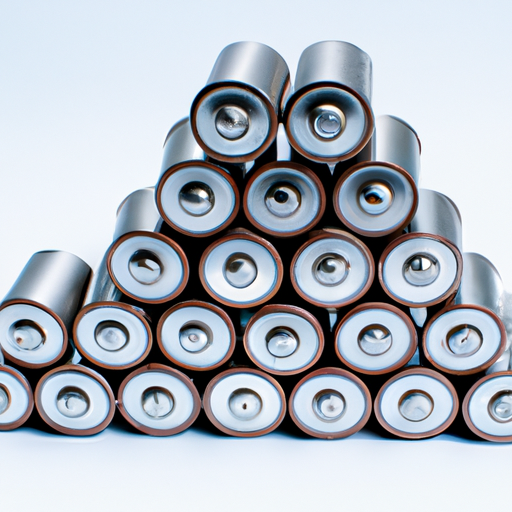

The film capacitor industry is currently experiencing steady growth and is expected to continue expanding in the coming years. Film capacitors are widely used in various electronic devices and applications due to their high reliability, long lifespan, and excellent performance characteristics. These capacitors are made from a thin plastic film that is coated with a metal electrode on each side, providing a high capacitance value in a compact size.

Another factor contributing to the growth of the film capacitor industry is the rising adoption of renewable energy sources, such as solar and wind power. These energy sources require sophisticated power electronics systems to convert and manage the electricity generated, and film capacitors play a crucial role in ensuring the smooth operation of these systems. As the demand for renewable energy continues to increase, so too will the need for high-quality film capacitors to support these applications.
Additionally, the automotive industry is a significant market for film capacitors, as modern vehicles are equipped with a wide range of electronic systems and components that require reliable capacitors for optimal performance. With the growing trend towards electric and hybrid vehicles, the demand for film capacitors in the automotive sector is expected to rise further in the coming years.
In terms of technology advancements, manufacturers are constantly innovating to improve the performance and efficiency of film capacitors. New materials and manufacturing processes are being developed to enhance the reliability and durability of these capacitors, as well as to reduce their size and weight. These advancements are enabling film capacitors to meet the evolving needs of the electronics industry and stay competitive in the market.
Despite the positive outlook for the film capacitor industry, there are some challenges that manufacturers need to address to sustain growth. One of the main challenges is the increasing competition from other types of capacitors, such as ceramic and electrolytic capacitors, which offer similar performance characteristics at a lower cost. To remain competitive, film capacitor manufacturers need to focus on differentiating their products through innovation, quality, and reliability.
Another challenge facing the film capacitor industry is the volatility of raw material prices, particularly for the plastic films used in capacitor production. Fluctuations in material costs can impact the profitability of manufacturers and affect pricing strategies in the market. To mitigate this risk, companies need to establish strong supplier relationships, optimize their supply chain, and invest in research and development to find alternative materials or manufacturing processes.
In conclusion, the film capacitor industry is in a strong position for growth, driven by the increasing demand for electronic devices, renewable energy systems, and automotive applications. With ongoing technological advancements and innovation, film capacitor manufacturers have the opportunity to expand their market presence and meet the evolving needs of customers. By addressing challenges such as competition and raw material costs, companies can position themselves for success in this dynamic and rapidly growing industry.
The film capacitor industry is currently experiencing steady growth and is expected to continue expanding in the coming years. Film capacitors are widely used in various electronic devices and applications due to their high reliability, long lifespan, and excellent performance characteristics. These capacitors are made from a thin plastic film that is coated with a metal electrode on each side, providing a high capacitance value in a compact size.

Another factor contributing to the growth of the film capacitor industry is the rising adoption of renewable energy sources, such as solar and wind power. These energy sources require sophisticated power electronics systems to convert and manage the electricity generated, and film capacitors play a crucial role in ensuring the smooth operation of these systems. As the demand for renewable energy continues to increase, so too will the need for high-quality film capacitors to support these applications.
Additionally, the automotive industry is a significant market for film capacitors, as modern vehicles are equipped with a wide range of electronic systems and components that require reliable capacitors for optimal performance. With the growing trend towards electric and hybrid vehicles, the demand for film capacitors in the automotive sector is expected to rise further in the coming years.
In terms of technology advancements, manufacturers are constantly innovating to improve the performance and efficiency of film capacitors. New materials and manufacturing processes are being developed to enhance the reliability and durability of these capacitors, as well as to reduce their size and weight. These advancements are enabling film capacitors to meet the evolving needs of the electronics industry and stay competitive in the market.
Despite the positive outlook for the film capacitor industry, there are some challenges that manufacturers need to address to sustain growth. One of the main challenges is the increasing competition from other types of capacitors, such as ceramic and electrolytic capacitors, which offer similar performance characteristics at a lower cost. To remain competitive, film capacitor manufacturers need to focus on differentiating their products through innovation, quality, and reliability.
Another challenge facing the film capacitor industry is the volatility of raw material prices, particularly for the plastic films used in capacitor production. Fluctuations in material costs can impact the profitability of manufacturers and affect pricing strategies in the market. To mitigate this risk, companies need to establish strong supplier relationships, optimize their supply chain, and invest in research and development to find alternative materials or manufacturing processes.
In conclusion, the film capacitor industry is in a strong position for growth, driven by the increasing demand for electronic devices, renewable energy systems, and automotive applications. With ongoing technological advancements and innovation, film capacitor manufacturers have the opportunity to expand their market presence and meet the evolving needs of customers. By addressing challenges such as competition and raw material costs, companies can position themselves for success in this dynamic and rapidly growing industry.